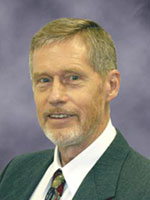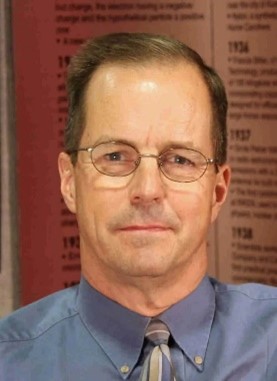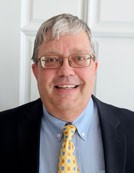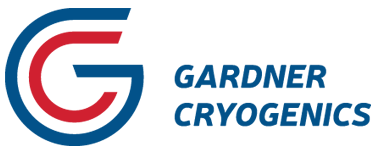CSA Short Courses at CEC/ICMC'25
CSA will be offering five Short Courses prior to the upcoming CEC/ICMC '25 at the Peppermill Resort Spa & Casino in Reno, Nevada on May 18, 2025. For full details on all the course offerings, see below. Full-Day CourseHalf-Day Courses
Note: Course lengths are approximate, and may vary depending on number of questions throughout the course. Registration RatesFull-Day Course
|
| Earlybird Price (Through April 18) |
Regular Price (After April 18) |
|
| CSA Member | $195 | $220 |
| Non-Member | $245 | $270 |
| Student | $145 | $170 |
Cryocooler Fundamentals
by Dr. Ray Radebaugh, NIST Fellow Emeritus | 8:00AM – 5:00PM
Cryogenic temperatures provide many useful benefits in such fields as medical, space exploration, military, security, transportation, fundamental science, energy, manufacturing, and many others. Various types of cryocoolers are commonly used to achieve these low temperatures, which may vary from about 10 mK to 150 K. The course describes the operating principles, applications, design, and examples of the six major gas cycles for temperatures down to about 1 K plus the adiabatic demagnetization refrigerator (ADR) and the dilution refrigerator (DR) for the millikelvin range. Relevant thermodynamic and heat transfer fundamentals are introduced to aid in the design of cryocoolers. The advantages/disadvantages of the three major recuperative cycles (Joule-Thomson, Brayton, and Claude) and the three major regenerative cycles (Stirling, Gifford-McMahon, and pulse tube) will be explained. The course covers modeling, design approaches, fabrication techniques, measurement methods, and cycle comparisons. The latest advances and new areas of cryocooler research will be discussed.
Instructor

Dr. Radebaugh was a physicist with the National Bureau of Standards/National Institute of Standards (NBS/NIST) from 1966 to 2009 conducting research on cryogenic refrigeration, heat transfer, and material properties. He was the Leader of the Cryogenic Technologies Group from 1995 until his retirement in 2009. After retirement he has been a NIST Fellow emeritus and continues to provide input to NIST regarding cryocoolers and material properties. He has published over 200 papers in the open literature and received numerous awards, including the Samuel Collins Award from the CEC in 2009, the Kurt Mendelssohn Award from the International Cryogenic Engineering Conference in 2022, and the Department of Commerce Gold Medal in 2003. He has taught more than 40 short courses on cryocoolers and three short courses on cryogenics since 1981.
Register Here!
Return to TopCool Fuel – The Science and Engineering of Cryogenic Hydrogen
by Dr. Jacob Leachman, Associate Professor, Washington State University and Dr. Konstantin Matveev, Professor, Washington State University | 8:00AM – 12:00PM
Cryogenic hydrogen has emerged as a critical tool in Humanity’s race against climate catastrophe. However, few have access to liquid hydrogen or understand the novel physics occurring in this extremely cold temperature regime. Knowledge of which is key to the hot fields of zero-carbon fuels, quantum computing, high-energy physics, and fusion energy. In this course, Professors Leachman and Matveev will utilize their new textbook, “Cool Fuel: The Science and Engineering of Cryogenic Hydrogen.” Participants will gain a foundational understanding of cryogenic terminology, learn practical design rules for cryogenic systems, and develop computer models for systems.
Instructors
 Jacob Leachman is an Associate Professor in the School of Mechanical and Materials Engineering at Washington State University (WSU). He initiated the Hydrogen Properties for Energy Research (HYPER) laboratory at WSU in 2010 with the intent to advance the Technology Readiness Level (TRL) of cryogenic hydrogen systems. He earned a B.S. degree in Mechanical Engineering in 2005 and a M.S. degree in 2007 from the University of Idaho. His master’s thesis has been adopted as the foundation for hydrogen fueling standards and custody exchange, in addition to winning the Western Association of Graduate Schools Distinguished Thesis Award for 2008. He completed his Ph.D. in the Cryogenic Engineering Laboratory at the University of Wisconsin-Madison in 2010 under the advice of John Pfotenhauer and Greg Nellis. He is the lead author of the reference text “Thermodynamic Properties of Cryogenic Fluids: 2nd Edition”. In 2018 he received the Roger W. Boom Award from the Cryogenics Society of America and is a Senior Fellow of the National Academy of Inventors.
Jacob Leachman is an Associate Professor in the School of Mechanical and Materials Engineering at Washington State University (WSU). He initiated the Hydrogen Properties for Energy Research (HYPER) laboratory at WSU in 2010 with the intent to advance the Technology Readiness Level (TRL) of cryogenic hydrogen systems. He earned a B.S. degree in Mechanical Engineering in 2005 and a M.S. degree in 2007 from the University of Idaho. His master’s thesis has been adopted as the foundation for hydrogen fueling standards and custody exchange, in addition to winning the Western Association of Graduate Schools Distinguished Thesis Award for 2008. He completed his Ph.D. in the Cryogenic Engineering Laboratory at the University of Wisconsin-Madison in 2010 under the advice of John Pfotenhauer and Greg Nellis. He is the lead author of the reference text “Thermodynamic Properties of Cryogenic Fluids: 2nd Edition”. In 2018 he received the Roger W. Boom Award from the Cryogenics Society of America and is a Senior Fellow of the National Academy of Inventors. Konstantin Matveev is a professor in the School of Mechanical and Materials Engineering at Washington State University and a fellow of the American Society of Mechanical Engineers. His PhD work at Caltech resulted in reduced-order models and experimental setups for thermoacoustic instabilities in resonators. Dr. Matveev carried out post-doctoral research at Los Alamos National Laboratory on nonlinear thermofluid phenomena with applications to thermoacoustic engines and refrigerators. At Washington State University, he explored miniature thermoacoustic prime movers and coolers and conducted computational modeling of heat-sound interactions in porous media. In recent years, Dr. Matveev extended his work to low-temperature systems, carrying out research on cryogenic hydrogen storage and cooling, non-equilibrium multi-phase cryogenic flows, acoustic oscillations in cryogenic environment, and para-orthohydrogen conversion. His research has been supported by the US National Science Foundation, Department of Defense, Department of Energy, and industry.
Konstantin Matveev is a professor in the School of Mechanical and Materials Engineering at Washington State University and a fellow of the American Society of Mechanical Engineers. His PhD work at Caltech resulted in reduced-order models and experimental setups for thermoacoustic instabilities in resonators. Dr. Matveev carried out post-doctoral research at Los Alamos National Laboratory on nonlinear thermofluid phenomena with applications to thermoacoustic engines and refrigerators. At Washington State University, he explored miniature thermoacoustic prime movers and coolers and conducted computational modeling of heat-sound interactions in porous media. In recent years, Dr. Matveev extended his work to low-temperature systems, carrying out research on cryogenic hydrogen storage and cooling, non-equilibrium multi-phase cryogenic flows, acoustic oscillations in cryogenic environment, and para-orthohydrogen conversion. His research has been supported by the US National Science Foundation, Department of Defense, Department of Energy, and industry.
Register Here!
Helium Cryogenics
by Steven W. Van Sciver, PhD, Florida State University | 8:00AM – 12:00PM
This course focuses on the fundamental aspects of helium cryogenic engineering. Topics include a survey of the thermodynamic properties of low temperature helium; Comparison of the two phases of liquid helium (He I and He II); and heat transfer and fluid dynamics processes. For practical applications, several examples of helium cryogenic systems will be discussed.
Instructor

Dr. Van Sciver is an Emeritus Professor with Florida State University currently working as a consultant to industry. He is the author of the textbook, Helium Cryogenics (Springer 2012) and the recipient of the Kurt Mendelssohn Award (2010) and the Samuel Collins Award (2017). He is also a Fellow of the Cryogenic Society of America and former American Editor for the international journal Cryogenics. During his career, Dr. Van Sciver has supervised the graduate education of 25 PhDs and 10 Masters in cryogenics and magnet technology and authored over 200 peer reviewed publications and five patents.
Register Here!
Cryogenic Safety
by John Weisend II, European Spallation Source | 1:00PM – 5:00PM
Work in the field of cryogenics involves a number of hazards including extreme cold, oxygen deficiency, high pressures and flammable fluids. These hazards have resulted in both injury and death. Despite this, work in cryogenics can be carried out safely if the hazards are understood and mitigated. This short course provides an introduction to safety in cryogenic systems for workers in all aspects of the field: industry, laboratory and university.
Topics covered include:
- Fluid properties and associated hazards
- Material properties and proper selection of materials
- General cryogenic safety and use of personal protective equipment
- Oxygen Deficiency hazards and mitigations
- Pressure safety
- Hazard analysis and the development of a safe work environment
Hazards associated with hydrogen, oxygen and LNG will be discussed but this is not a complete safety course on these topics.
Example accidents are discussed. The course provides lists of best practices along with an extensive list of references and resources for additional safety information.
Instructor
 John Weisend is currently a Senior Accelerator Engineer at the European Spallation Source in Lund, Sweden. He is also an Adjunct Professor of Engineering at Lund University He received his Ph.D. in Nuclear Engineering & Engineering Physics from the University of Wisconsin – Madison, He has worked at the SSC Laboratory, the Centre D’Etudes Nucleaires Grenoble, the Deutsches Elecktronen-Synchrotron Laboratory (DESY), the Stanford Linear Accelerator Laboratory (SLAC), the National Science Foundation and Michigan State University. Dr. Weisend’s research interests include He II, cryogenic safety and large scale accelerator cryogenics. His publications include: He is for Helium, Going for Cold (co-authored with T. Meaden), Cryogenic Safety (co-authored with T. Peterson) Cryogenic Two-Phase Flow (co-authored with N. Filina) and the editor of the Handbook of Cryogenic Engineering and of Cryostat Design. He writes a regular column “Cryo Bios” for the publication Cold Facts and is a member of both the Cryogenic Engineering Conference and International Cryogenic Engineering Conference Boards.
John Weisend is currently a Senior Accelerator Engineer at the European Spallation Source in Lund, Sweden. He is also an Adjunct Professor of Engineering at Lund University He received his Ph.D. in Nuclear Engineering & Engineering Physics from the University of Wisconsin – Madison, He has worked at the SSC Laboratory, the Centre D’Etudes Nucleaires Grenoble, the Deutsches Elecktronen-Synchrotron Laboratory (DESY), the Stanford Linear Accelerator Laboratory (SLAC), the National Science Foundation and Michigan State University. Dr. Weisend’s research interests include He II, cryogenic safety and large scale accelerator cryogenics. His publications include: He is for Helium, Going for Cold (co-authored with T. Meaden), Cryogenic Safety (co-authored with T. Peterson) Cryogenic Two-Phase Flow (co-authored with N. Filina) and the editor of the Handbook of Cryogenic Engineering and of Cryostat Design. He writes a regular column “Cryo Bios” for the publication Cold Facts and is a member of both the Cryogenic Engineering Conference and International Cryogenic Engineering Conference Boards.
Register Here!
Practical Cryogenic Thermometry and Instrumentation
by Dr. Scott Courts, Metrologist/Scientist, Lake Shore Cryotronics | 1:00PM – 5:00PM
Temperature is likely the physical parameter most often measured even though it’s rarely the main physical parameter of interest. Proper installation and operation of any type of sensor at cryogenic temperatures is challenging, but especially so for temperature sensors. The temperature measurement is complicated by a number of factors including thermal connection between the sensor and experiment, limitations on excitation power, heat leak to the sensor, distance from sensor to instrument, and noise. The effects of any of these can be indistinguishable from a true variation in temperature. This short course is designed to provide an introduction to cryogenic temperature sensors and associated reading electronics to temperatures down to 10 mK. The course gives a basic overview of:
- Temperature sensors and their properties
- Selection criteria for applications and the tradeoffs involved
- Proper installation techniques for the sensors
- Selection criteria for the instrument
- Proper operation of the sensor / instrument combination
- Suggestions for optimizing the performance
- Troubleshooting when problems arise.
Emphasis is placed on the practical aspects of performing accurate temperature measurements.
Instructor
 Dr. Scott Courts received a Ph.D. in Experimental Solid State Physics from The Ohio State University in 1988. He has over thirty-five years of experience in low temperature thermometry and cryogenics, as well as experience with a variety of thin-film deposition and material testing and characterization techniques. Since 1989 Dr. Courts has worked as a Senior Scientist with Lake Shore Cryotronics’ Sensor R&D, Sensor Manufacturing, and Sensor Product Development Groups. During his tenure with Lake Shore, he has served as technical director for Lake Shore's temperature calibration facility, worked to develop new thermometry materials and packages, expand calibration capabilities, developed special expertise in magnetic field and radiation testing, and published numerous articles on cryogenic thermometry.
Dr. Scott Courts received a Ph.D. in Experimental Solid State Physics from The Ohio State University in 1988. He has over thirty-five years of experience in low temperature thermometry and cryogenics, as well as experience with a variety of thin-film deposition and material testing and characterization techniques. Since 1989 Dr. Courts has worked as a Senior Scientist with Lake Shore Cryotronics’ Sensor R&D, Sensor Manufacturing, and Sensor Product Development Groups. During his tenure with Lake Shore, he has served as technical director for Lake Shore's temperature calibration facility, worked to develop new thermometry materials and packages, expand calibration capabilities, developed special expertise in magnetic field and radiation testing, and published numerous articles on cryogenic thermometry.
Register Here!



